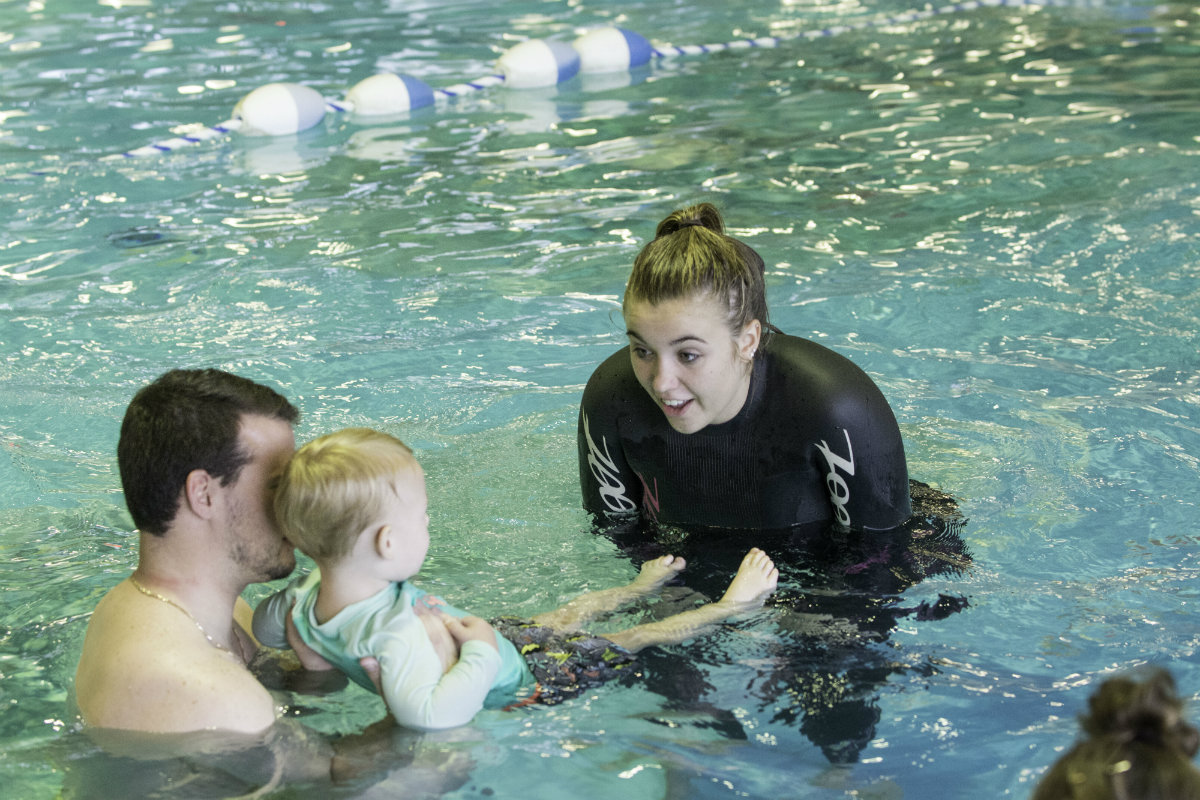In 2011, Fairfax County Park Authority Aquatics (FCPA) found itself in a predicament when the Red Cross announced a dramatic increase in its learn-to-swim program’s pricing structure. At the time, FCPA was providing approximately 35,000 individuals with swim instruction each year, and aquatics programs represented 40% of class program revenue for the agency.
“With the size of our program, we estimated the impact [would be] over $200,000,” says John Berlin, FCPA program branch manager. “It would cripple our program.”
Unable to absorb the added cost, FCPA had to come up with a solution that would meet its residents’ needs and fall within budget. The group reached out to other jurisdictions in Northern Virginia that might be facing the same challenge, in the hopes of pooling together their learn-to-swim knowledge. FCPA worked to assemble a team throughout Northern Virginia of people with more than 100 years of aquatics knowledge, including representatives from Reston Association, Town of Herndon, Town of Leesburg, and the Reston Community Center.
The result of this collaboration was Virginia Swims, a learn-to-swim program that has provided instruction to approximately 150,000 people of all ages in Fairfax County since its implementation in 2012.
“The objective of [creating] Virginia Swims was to develop a quality-focused, sustainable learn-to-swim program, free of licensing fees and available to any local jurisdiction,” Berlin says.
Worthy collaboration
Using data has been important from the start for this team of collaborators.
Berlin remembers thinking, “If we’re going to launch a learn-to-swim program, that’s an awesome responsibility. It needs to be comprehensive and proven and effective.”
Before building the Virginia Swims curriculum, the team looked at customer survey data to test existing satisfaction with the current offering.
While it’s always important to understand the needs of the local citizenry, here it held particular urgency: For this program to work, the agency would depend on community members who wanted to pay for it and recommend it to others. Unlike most parks and recreation programs, which are heavily subsidized by tax dollars, the operations and salaries of FCPA come entirely out of the money it takes in through revenue.
“We have to operate like a business, but provide the service that a government agency would,” Berlin says.
Customers with students enrolled in Virginia Swims are surveyed regularly on 25 to 35 different aspects of its performance to ensure the program consistently meets their standards. This feedback is then analyzed and given to instructors so they can improve classes.
The program’s most recent initiative is the learn-to-swim outcomes pilot evaluation, which began about two years ago. Data is gathered from instructor evaluation sheets across recreation center locations in order to determine which aspects of the curriculum are effective and what needs improvement.



